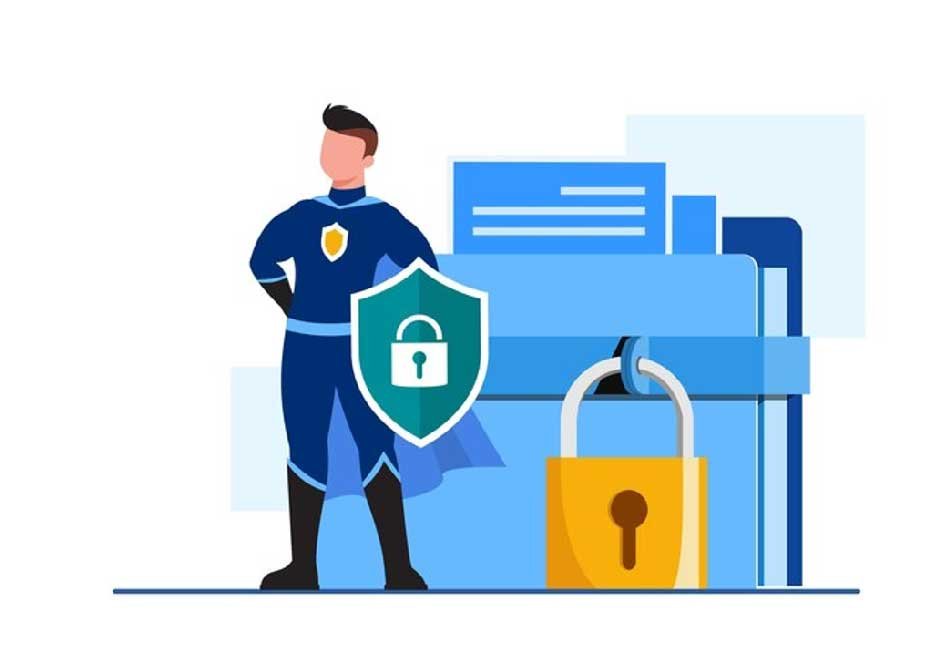Skip to the good bit
ToggleOn average, companies pay $4.88 million for data breaches — the highest amount lavished yet. This immediately places government contractors at severe risk. It is a real and immediate threat to sensitive data.
A failed security can cost companies millions and valuable contracts. NIST 800-171 helps prevent these losses. It works to protect this same type of information on federal systems and systems outside the government.
Contractors have to follow guidelines. Trust is needed to maintain government contracts and to keep on their books. Proper data protection is necessary for your company’s future. So, every contractor needs to know NIST 800-171.
What NIST 800-171 Is And Why You Need It?

NIST 800-171 is a security standard developed by the National Institute of Standards and Technology to protect sensitive government information (CUI) when non-federal organizations control it.
It applies to any organization—contractors, subcontractors, or research institutions—working with government data. To secure confidential data, companies must implement particular security approaches, such as access controls, encryption, and surveillance systems.
Many government contracts require the following NIST 800-171. Failure to comply carries implications such as losing contracts, paying fines and damaging reputation.
Why Your Business Needs NIST 800-171
Today’s contractors must treat NIST 800-171 as a vital investment in business security. It’s not optional – it’s essential for staying operational and competitive.
1. Protecting Your Critical Data
Contractors handle sensitive government information daily, from technical designs to business strategies. The risks of poor security are severe:
- Data breaches cost $4.88 million on average
- Security failures destroy trust and lead to lost contracts
- Legal problems bring fines and sanctions
NIST 800-171 helps prevent these issues. Following these security standards protects your sensitive data and keeps your business safe from threats.
2. Meeting Your Contract Requirements
Following NIST 800-171 rules isn’t optional when you work with government contracts. These security standards are required by law.
Not meeting these requirements puts your business at risk:
- You can lose your current contracts
- You might be blocked from future government work
- Your company could face large fines
- Legal problems could drain your resources
NIST 800-171 compliance proves you take security seriously. This matters when bidding on new contracts.
Government agencies prefer working with contractors who protect their data properly. Meeting these standards helps you keep existing contracts and win new ones.
3. Staying Ahead of Your Competition

Following NIST 800-171 standards do more than just meet basic requirements. It makes your business stand out from other contractors.
Strong security practices help you:
- Build trust with government agencies
- Show clients you take data protection seriously
- Win more competitive bids
- Prove your reliability and planning skills
When agencies choose contractors, they look for businesses that protect their data well. NIST 800-171 compliance shows you’re committed to security excellence.
This makes you a more attractive choice for important government work. Your dedication to security helps you become a trusted leader in your field.
4. Building Better Security Practices
NIST 800-171 creates strong security habits throughout your organization in three main areas:
Incident Response:
- Teams can detect threats faster through better monitoring
- Quick response plans reduce damage when incidents occur — consider that a breach can remain undetected for over six months.
- Regular reviews help prevent future problems.
Security Protection:
- Regular security checks find weaknesses early
- Updates defend against new threats
- Standard controls prevent common security mistakes
Cost Benefits:
- Preventing security problems costs less than fixing them
- Strong security keeps your business running smoothly
- Good security practices can lower insurance costs
These improvements help protect sensitive data and create a more secure organization overall. Regular testing and updates keep your defenses strong against new threats.
5. Avoiding Legal Problems and Penalties
Not following NIST 800-171 requirements can create serious legal problems for your organization. Regulatory agencies can issue hefty fines when companies fail to protect sensitive data adequately.
Data breaches often lead to lawsuits that drain time and money from your business. Even settling these cases out of court can be expensive. Government investigations may find more compliance problems, leading to additional penalties.
These legal issues harm your company’s reputation. Clients lose trust when they see negative news about data breaches and lawsuits. Business partners and investors may view your company as unreliable, affecting market value.
Following NIST 800-171 standards helps prevent these problems by establishing strong security practices that protect your organization.
6. Building Strong Client Relationships

Compliance with the NIST 800-171 standards helps it to earn the trust of clients and business partners. Clients are more at ease working with you if you invoke proven security standards to protect sensitive data that they entrust to you.
Building everlasting business relationships is only possible with strong security practices. The focus on security can empower you to secure government contracts.
This reinforces the impression to your clients’ heads that you are very serious about their data protection.
Showing you do not break regularly, releases show you are prepared to manage new dangers. However, a continuous effort for security helps to build a reputation for your reliability as a partner.
Conclusion
NIST 800-171 does more than meet the regulations. This protects your business from data breaches that cause devastation and damage to reputation. Act now to defend your personal or government contract information.
NIST 800-171 gives you the advantage of having a well-guarded firewall and the advantage of having strong cyber security, which is needed to keep out your competitors if they don’t comply.







